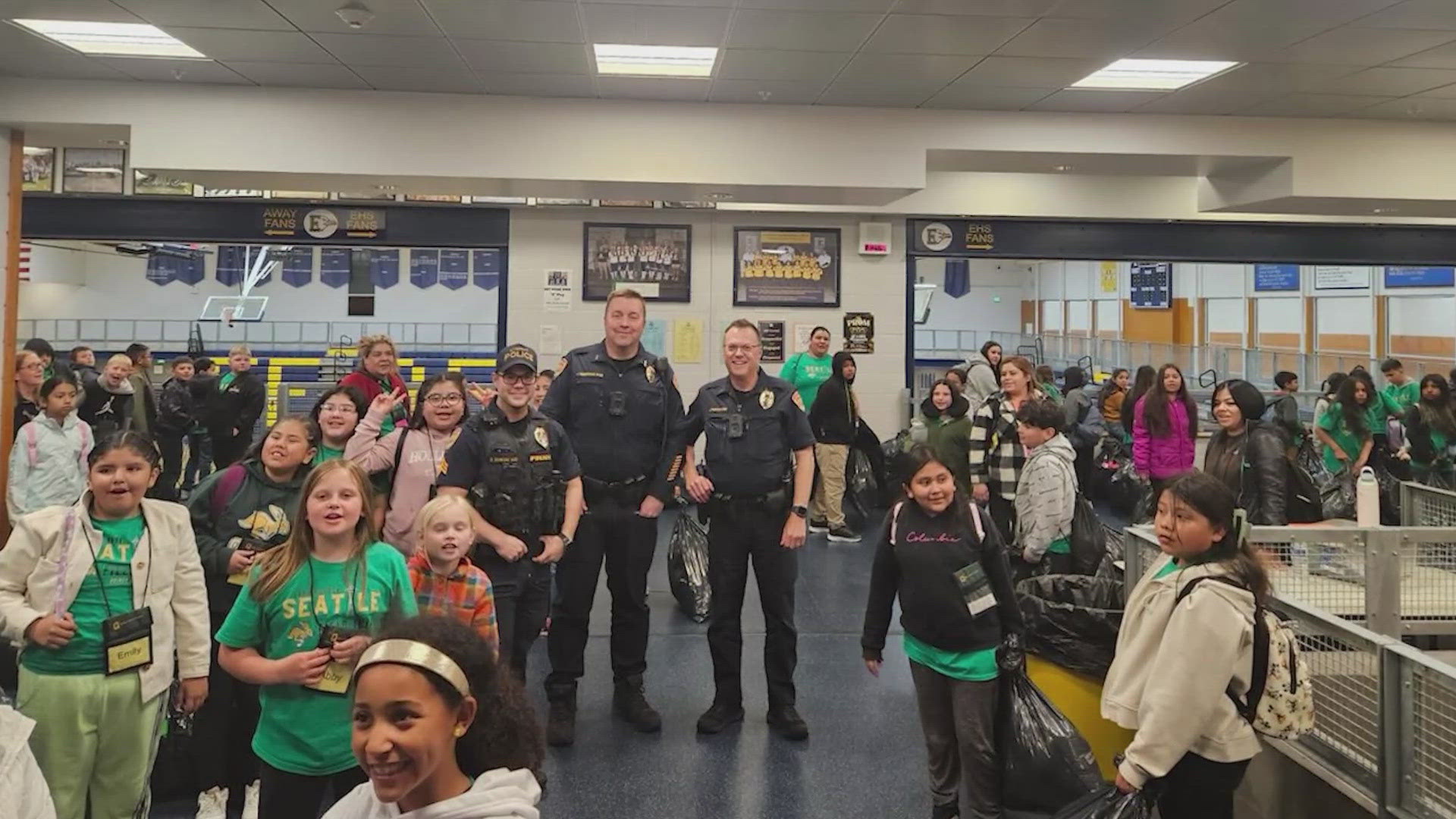Two very different accounts of what happened inside the Northwest Detention Center in Tacoma have emerged in the case of a Seattle area “Dreamer” arrested last week.
Daniel Ramirez Medina, a 23-year-old granted “deferred action,” or DACA status, was taken into custody during an operation targeting his father, a previously deported felon convicted of drug trafficking, according to ICE.
His attorneys argue Ramirez was detained unlawfully and pressured into making statements about gang affiliation by ICE officers once in custody.
In a newly filed brief Thursday evening, Ramirez Medina’s attorneys even allege an “apparent attempt to cover up evidence that would disprove their gang affiliation allegations."
According to the new documents, Ramirez wrote an appeal to officers asking to have his classification within the detention facility changed, but attorneys believe the statement was altered, or partly erased to change the meaning.
From attorneys brief:
Mr. Ramirez wrote: “I came in and the officers said I have gang affiliation with gangs, so I wear an orange uniform. I do not have a criminal history and I’m not affiliated with any gangs.”
“Edited” Version: “I have gang affiliation with gangs, so I wear an orange uniform. I do not have a criminal and I’m not affiliated with any gangs.”
ICE has not directly responded to the allegation, but a spokesperson said, "both sides will have an opportunity to present evidence to the court."
ICE has said Ramirez was a self-admitted gang member, a factor that would put his DACA status in jeopardy.
The case has drawn national attention.
Meanwhile, court documents filed Thursday shed new light on why the Department of Homeland Security says Ramirez Medina was detained and remains in custody.
According to ICE officers, Ramirez was sleeping at the time they arrived at the family's Des Moines apartment to arrest his father and was asked if was in the country illegally. After responding "yes," officers took him into to custody for further questioning.
At the detention center, it was determined he Ramirez Medina was a DACA recipient and did not have a criminal history.
However, DHS says when asked about his involvement with gang activity, officers say Ramirez stated: “No, not no more,” according to court documents.
Officers then asked about what they identified as a “gang tattoo” on his forearm and said he stated “he used to hang out with the Surenos in California….and fled California to escape from gangs,” according to the documents.
DHS says Ramirez Medina stated he still hangs out with “Paizas in Washington State,” according to the officer taking the report.
“Paizas is also a colloquial term for the Mexican people. So, one of the things we’re evaluating at this point is whether he used word paizas colloquially—I hang out with paizas, paizanos,” Luis Cortes, one of the lawyers on the case.
Ramirez Medina’s attorneys firmly deny any gang affiliation and have said he was pressured into making the statements.
“The more they kept pressuring him about gangs, the wider the scope of the questions came in,” said Luis Cortes, one of the attorneys on the case. “It wasn’t are you a gang member anymore. It’s do you know anyone ever in a gang.”
In an interview with KING 5, Cortes questioned why the intense questioning occurred after it was confirmed he was in the DACA program, a process that requires a background check and fingerprints, according to U.S. Citizenship and Immigration Services.
“They confirmed he had no criminal history, and it was at that point they continued to detain him, and that’s where it starts getting problematic,” said Cortes.
“It was at that point—that they started asking him about any gang affiliations, if he was a gang member, and he repeatedly said, I’m not a gang member.
“They finally focused on his tattoo, and said ‘what is that?’ And he said, it’s the region where I was born, La Paz, Baja California Sur.”
“He was acting in good faith. The problem was that DHS kept asking and asking and asking and eventually they formed their own conclusions from the little bits of information they were able to get,” said Cortes.
However, Cortes does not believe the case is part of new enforcement action, particularly around the DACA program.
“We haven’t seen a larger trend with this new administration. At least just yet,” said Cortes. “Things have been similar. That’s why it surprises us to have a case like this, where it seems like there’s a pretty big misunderstanding.”



